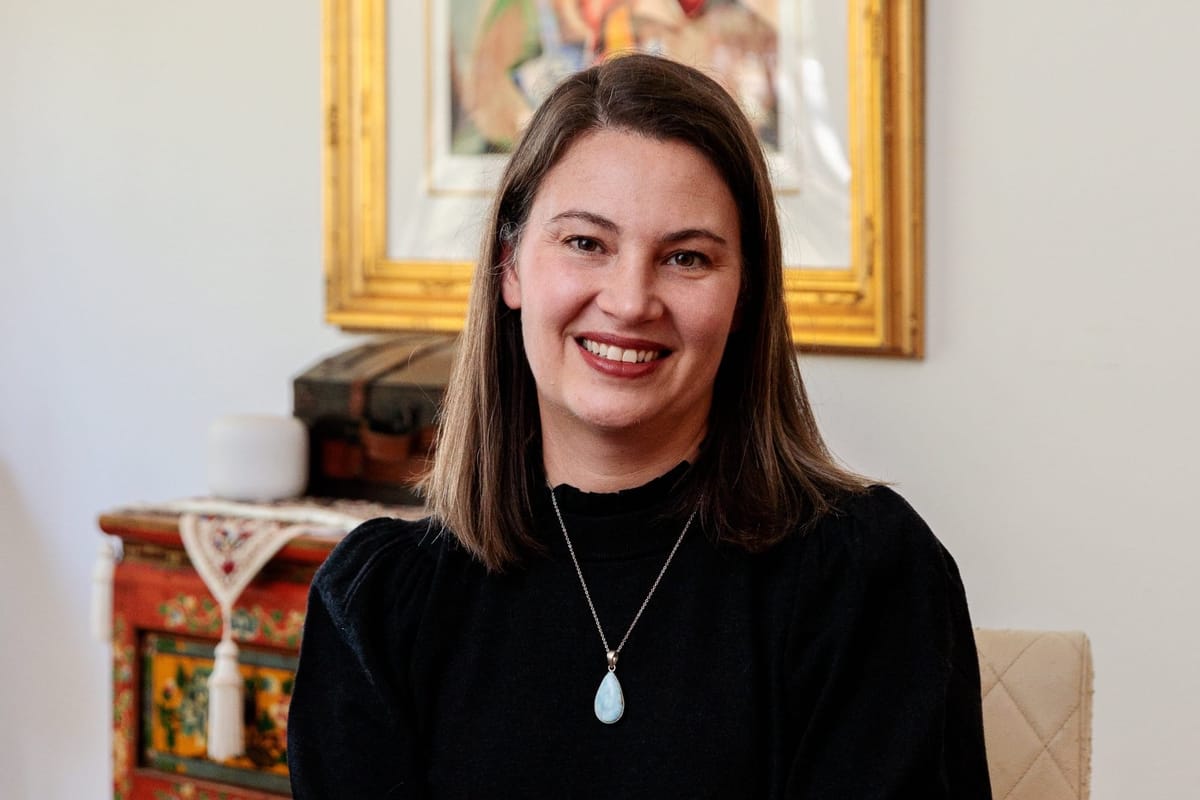
Oklahoma City is home to so many different successful entrepreneurs. Jen Jones, owner and CEO of Cordea Consulting, started her IT health care consulting firm 15 years ago in Oklahoma City, and now provides consulting to hospitals, clinics and health care organizations across the country. Her firm continues to grow year over year — she currently employs more than 150 people across the United States. Jones is a servant leader who cares deeply about her team and her clients, which is evident in the loyalty and reputation she and her team have built.
You lead a remote team of more than 150 people and have been quite adept at cultivating an environment where people are successful. What are some of the things you have done to create such a thriving culture?
Cordea’s model has always been structured around a hybrid virtual/in-person culture, so anyone we hire is screened to ensure working remotely is a good fit.
We operate with two distinct teams with a bridge between them. Our Core Team is focused on running the business, and the whole team meets every morning for a virtual “huddle.” This keeps a cadence for our team and allows everyone to stay connected. Our Consultant Team is focused on delivery for our customers, and they often travel to client sites. They straddle the Cordea culture but also are immersed in their respective clients’ cultures.
We have created a unique model where consultants meet with our Core Team delivery executives on an engagement-based schedule. This ensures they are supported in various ways, including offering content expertise; sharing tools, templates and lessons learned; and sometimes acting as a sounding board or second set of eyes for key deliverables. Our delivery executives also frequently meet with clients and our consultants to ensure delivery is progressing as expected. We use a variety of tools and tactics to orchestrate the needs of all.

How did you get the idea to start Cordea Consulting?
Interestingly enough, I didn’t exactly come up with the idea. I was asked by a former client to engage as a consultant on a large project. Not long after I started, they asked me to supply other resources — and before I knew it, something really special had come to life. I had a synergistic team of people in place and referrals coming in from other parts of the country.
What makes Cordea Consulting different?
We have a few key ingredients to our success. Our sales team is extremely knowledgeable in our extremely distinct and narrow field of expertise. They “speak the language” of our customers, allowing a simple transaction to solve their problem. Our recruitment team is also incredible at what they do. They will not submit candidates who don’t meet the requirements or would not be a good fit for an organization’s culture, and our clients really appreciate that. In fact, they are so good that we have been asked by clients many times what our patented screening process is.
Our delivery executives also make Cordea stand out because they are seasoned in all aspects of similar engagements. They bring a lot of credibility and confidence to our clients and consultants; they serve as a tremendous value-add.
Lastly, we often get compliments on our billing — legible invoices, ability to modify to ensure seamless processing, quick responses, etc. Not all consultancies do this well, but we have taken the time to hone our process.
Where do you see Cordea Consulting in 5 years?
We are actively working to expand into other areas of healthcare. We are marketing and selling into the payer space, life sciences, health tech start-ups, etc. I want to ensure we are equipped to serve those customers with the same level of expertise and service delivery that we offer on the provider side.
What was the best piece of advice you were given when you were first starting out?
I had several supporters early on and each brought a different perspective. Some common themes were not to get discouraged, not to sweat the small stuff and just keep after it.
What is the biggest sacrifice you have made in leading a business?
I don’t feel like I have sacrificed much. Quite the opposite, in fact. I feel I have really been given a lot over the years! At times it can be tough to juggle family, friends and business, but I have a pretty clear set of priorities and a fantastic support network.
What is the biggest overall lesson you’ve learned in running a business?
Show grace and listen.
What are you most proud of in what you do?
I’m proud of the deep and longstanding relationships that have developed with our core team, customers and consultants. It’s not always easy to build trust in the business world, so our track record of lasting partnerships speaks volumes.
You have traveled extensively. Of all the places you have visited across the globe, which holds the most special memory for you?
Most definitely the Amalfi Coast in Italy. My mother grew up going there as a child of an Air Force lieutenant colonel stationed in Germany. I heard about the sights, smells and family stories driving the windy roads. I went while living in England, again upon completion of my MBA from Pepperdine and then again to get married. We are actually currently planning our 10-year anniversary celebration next June. We will get to take parents and my kids!
What is your favorite thing to do when you are not at work?
I have two young daughters, and they keep my husband and me very busy! We spend time at school and family events, and also like to travel. We’ve taken several trips this summer and have a few more scheduled this fall and winter.
What is the one “luxiere” you can not live without?
I think both family and travel are “luxieres” I can’t live without. Having a healthy, happy family is truly a luxurious gift, and the happy smiles and inquisitive looks are contagious when we travel and experience new things.
Kati Hanna is a partner with The Mettise Group and has been consulting with growth stage businesses for over two decades. Her results in business coaching, consulting and leadership development have influenced hundreds of companies across the United States.

